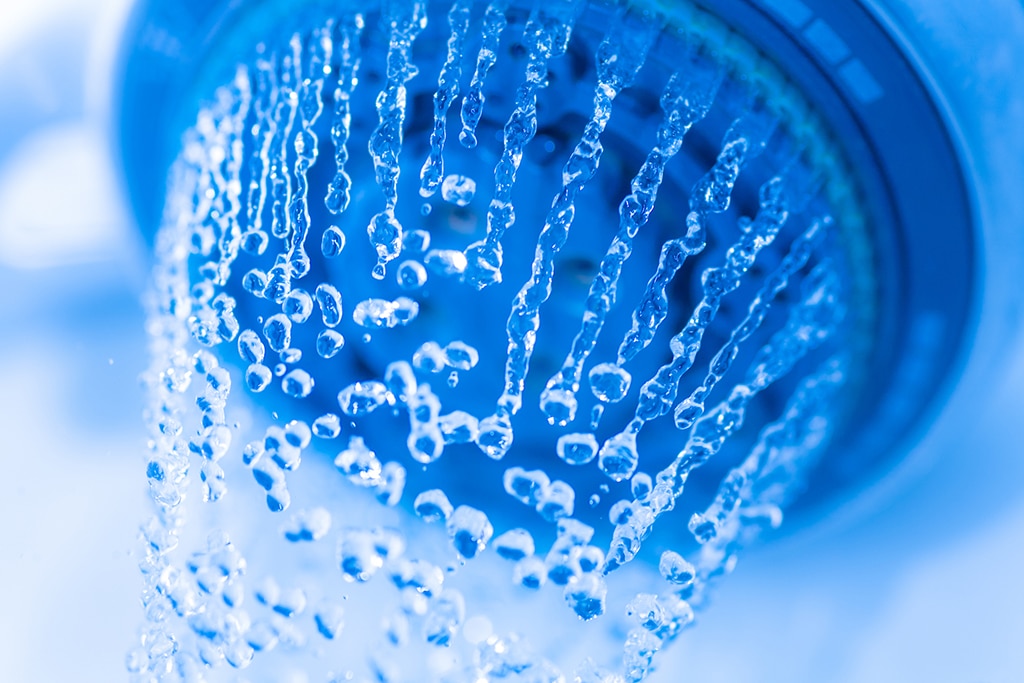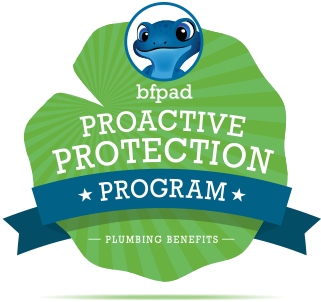
Top Efficient Water Heating Solutions for Your Home
Are you looking for efficient water heating solutions for your home?
Finding the right water heating system can save you money and improve your home’s energy efficiency. Water heating is a significant aspect of home maintenance, impacting comfort and utility bills. Understanding the various options and their benefits can help you make an informed decision that suits your needs and budget.
In this guide, we’ll explore different types of water heaters, their mechanisms, and what makes them efficient. Whether you’re considering a conventional storage water heater, a tankless system, or even a solar-powered option, we’ll provide insights into each to help you choose the best water heating solution.

Importance of Efficient Water Heating Solutions
Why is efficient water heating important for your home? Efficient water heating solutions not only reduce energy consumption but also lower utility bills and lessen environmental impact. With the right system, you can enjoy consistent hot water without the fear of skyrocketing costs.
Cost Savings
Efficient water heaters use less energy, which translates to significant savings on your monthly utility bills. Over time, these savings can offset the initial investment in a high-efficiency system.
Environmental Impact
Reducing energy consumption helps lower your home’s carbon footprint. Opting for energy-efficient water heating solutions contributes to environmental conservation by decreasing greenhouse gas emissions.
Improved Performance
Efficient water heating solutions often provide better performance, ensuring a steady supply of hot water without long wait times. This means more comfort and convenience for your household.
Longevity and Reliability
High-efficiency water heating solutions are typically designed with advanced technology and better materials, making them more durable and reliable. This means fewer repairs and replacements, adding to the long-term value of your investment.
Overview of Water Heating Options
What water heating solutions are available for your home? Understanding the different types of water heaters can help you select the one that best meets your needs. Here’s a look at the main options:
- Conventional Storage Water Heaters: These are the most common types of water heaters found in homes. They have a tank that stores hot water, which is heated continuously to keep it at the desired temperature.
- Tankless Water Heaters: Also known as on-demand water heaters, these units heat water only when you need it. They don’t have a storage tank, which saves space and energy since there is no need to maintain a reservoir of hot water.
- Heat Pump Water Heaters: These water heating solutions use electricity to move heat from one place to another instead of generating heat directly. They are highly energy-efficient, especially in warm climates.
- Solar Water Heaters: Harnessing the power of the sun, these systems use solar panels to collect and convert solar energy into heat. They are environmentally friendly and can significantly reduce energy costs.
- Hybrid Water Heaters: Combining the features of conventional and heat pump water heaters, hybrid systems offer increased efficiency by using heat pump technology along with traditional heating elements.
Understanding Your Water Heating Needs
How do you determine the best water heating solution for your home? Understanding your specific needs is crucial to making the right choice. Here are key factors to consider:
Assessing Household Hot Water Usage: Evaluate your household’s hot water consumption. Consider the number of people in your home and their water usage habits. Do you have multiple bathrooms, a dishwasher, and a washing machine that all require hot water simultaneously? Estimating your peak hot water demand will help you choose a system that can handle your needs.
Factors Influencing Water Heater Choice: Several factors will influence your decision, including:
- Home Size and Layout: Larger homes or homes with multiple stories may benefit from a tankless water heater installed at the point of use or a larger capacity storage tank.
- Climate: Your local climate impacts the efficiency of certain water heaters. For example, heat pump water heaters are more efficient in warm climates, while solar water heaters are ideal in sunny regions.
- Energy Source: Consider the availability and cost of different energy sources such as electricity, natural gas, or solar power in your area.
Budget and Long-Term Savings: While initial costs are important, it’s crucial to consider long-term savings. High-efficiency systems may have higher upfront costs but can lead to significant savings on energy bills over time.
By thoroughly understanding your water heating needs, you can make a more informed decision that ensures comfort, efficiency, and cost savings for your household.
Water Heating Solutions: Conventional Storage Water Heaters
Conventional storage water heaters are the most traditional and widely used water heating systems in homes. But how do they work, and what are their advantages and disadvantages?
How They Work: Conventional storage water heaters consist of an insulated tank where water is heated and stored until needed. A thermostat controls the water temperature, ensuring it remains at the desired level. When hot water is used, cold water enters the bottom of the tank to be heated. This cycle continues, providing a steady supply of hot water.
Water Heating Solutions Pros and Cons:
Pros:
- Affordability: These units are generally less expensive to purchase and install compared to other types.
- Availability: They are readily available and come in various sizes to fit different household needs.
- Simplicity: Their simple design makes them easy to operate and maintain.
Cons:
- Energy Efficiency: These heaters continuously heat water to maintain the temperature, leading to higher energy consumption and costs.
- Space Requirements: They require significant space for installation, which can be a drawback for homes with limited space.
- Limited Supply: The amount of hot water available is limited to the tank’s capacity, which can be an issue for larger households during peak usage times.
Water Heating Solutions: Tankless Water Heaters
Tankless water heaters, also known as on-demand water heaters, are gaining popularity due to their efficiency and space-saving design. How do they work, and what benefits do they offer?
How They Work: Tankless water heaters heat water directly without the use of a storage tank. When a hot water tap is turned on, cold water travels through a pipe into the unit. A gas burner or an electric element heats the water, delivering a constant supply of hot water. This means you won’t run out of hot water as long as the heater is operating within its capacity.
Water Heating Solutions: Benefits of On-Demand Heating:
- Energy Efficiency: Since tankless water heaters only heat water when needed, they can be more energy-efficient than conventional storage water heaters. This reduces energy costs over time.
- Space-Saving: These units are compact and can be mounted on walls, making them ideal for homes with limited space.
- Longevity: Tankless water heaters typically have a longer lifespan than traditional tank heaters, often lasting up to 20 years with proper maintenance.
Water Heating Solutions: Top Models in the Market
- Rinnai RUR199iN:
- Features: Recirculation technology, Wi-Fi capability.
- Pros: High efficiency, endless hot water supply, easy installation.
- EcoSmart ECO 27:
- Features: Digital temperature control, compact design.
- Pros: Energy-efficient, affordable, suitable for smaller households.
- Navien NPE-240A:
- Features: Advanced condensing technology, integrated recirculation pump.
- Pros: High flow rate, energy-efficient, durable.
Water Heating Solutions: Heat Pump Water Heaters
Heat pump water heaters (HPWHs) are an innovative and energy-efficient option for providing hot water in your home. How do they operate, and what makes them stand out?
Mechanism and Efficiency: Heat pump water heaters use electricity to transfer heat from the air or ground to heat the water. Instead of generating heat directly, they work like a refrigerator in reverse. This process makes them significantly more energy-efficient compared to conventional electric water heaters. By extracting heat from the surrounding environment, they can reduce energy consumption by up to 60%.
Suitable Environments: HPWHs are particularly effective in warm climates where the air temperature remains relatively high throughout the year. They need to be installed in locations that remain between 40º–90ºF (4.4º–32.2ºC) year-round and provide at least 1,000 cubic feet (28.3 cubic meters) of air space around the water heater.
Cost and Energy Savings: Although the upfront cost of heat pump water heaters is higher than that of conventional models, the long-term savings on energy bills can be substantial. Over time, the reduction in energy usage can offset the initial investment. Additionally, many regions offer incentives and rebates for installing energy-efficient appliances, further reducing the overall cost.
Advantages:
- Energy Efficiency: Uses significantly less electricity, making it an environmentally friendly choice.
- Long-Term Savings: Lower operating costs lead to savings over the water heater’s lifespan.
- Versatility: Can also function as a dehumidifier in warm and humid climates.
Disadvantages:
- Initial Cost: Higher upfront investment compared to traditional water heaters.
- Installation Requirements: Needs sufficient space and a specific temperature range to operate efficiently.
Water Heating Solutions: Solar Water Heaters
Solar water heaters harness the power of the sun to provide hot water for your home. What are the key features of these systems, and how do they benefit homeowners?
Harnessing Solar Energy: Solar water heaters use solar panels, typically installed on the roof, to capture and convert sunlight into heat. This heat is then transferred to a fluid, either water or a heat-transfer fluid, which circulates through the system to provide hot water. There are two main types of solar water heaters: active (which uses pumps to circulate the fluid) and passive (which relies on natural convection).
Installation Considerations: Installing a solar water heater requires careful planning and consideration of several factors:
- Roof Space and Orientation: Adequate roof space with good sun exposure is essential. The panels should ideally face south (in the Northern Hemisphere) to maximize sun exposure.
- Climate: Solar water heaters are most effective in sunny climates but can also work in areas with less sun, though supplemental heating may be needed.
- System Size: The size of the system should match the household’s hot water needs. A professional installer can help determine the appropriate size and configuration.
Cost-Benefit Analysis: While solar water heaters have higher upfront costs compared to conventional systems, the long-term savings on energy bills can be significant. Additionally, many regions offer tax credits, rebates, and incentives to offset the initial investment. The reduction in energy costs and environmental benefits often make solar water heaters a worthwhile investment.
Advantages:
- Renewable Energy Source: Solar energy is free and abundant, reducing reliance on fossil fuels.
- Environmental Impact: Solar water heaters produce no greenhouse gas emissions, making them an eco-friendly option.
- Long-Term Savings: Lower energy bills over the life of the system.
Disadvantages:
- Initial Cost: Higher upfront costs for equipment and installation.
- Weather Dependent: Efficiency can be affected by cloudy days and seasonal variations.
Water Heating Solutions: Hybrid Water Heaters
Hybrid water heaters, also known as heat pump water heaters with backup resistance elements, combine multiple technologies to provide an efficient and reliable hot water solution. How do these systems work, and what makes them a good choice for homeowners?
Combining Technologies: Hybrid water heaters utilize a heat pump to extract heat from the air and transfer it to the water. During periods of high demand, they switch to electric resistance heating to ensure a continuous supply of hot water. This dual functionality allows them to provide the efficiency of a heat pump with the reliability of traditional electric water heaters.
Efficiency and Performance: Hybrid water heaters are highly energy-efficient, often using 60% less energy than conventional electric water heaters. They adjust their operation based on demand, optimizing performance and energy use. Many models come with multiple modes, such as efficiency mode, hybrid mode, and high-demand mode, allowing users to customize the heater’s performance to their needs.
Ideal Scenarios for Use: Hybrid water heaters are best suited for households with variable hot water needs. They can handle periods of high usage while maintaining efficiency during regular operation. They are ideal for climates where the ambient air temperature remains within a moderate range, as extremely cold environments can reduce their efficiency.
Advantages:
- Energy Savings: Significantly lower energy consumption compared to conventional electric water heaters.
- Versatility: Can operate in different modes to match household hot water demands.
- Environmental Impact: Reduced energy use translates to a smaller carbon footprint.
Disadvantages:
- Initial Cost: Higher upfront costs than traditional water heaters, though often mitigated by energy savings and incentives.
- Space Requirements: Need sufficient space for installation and air circulation.
Water Heating Solutions: Fuel Types for Water Heaters
Choosing the right fuel type for your water heater can significantly impact efficiency, cost, and environmental footprint. Here, we’ll explore the main fuel types: electric and gas water heaters, and compare their costs and efficiency.
Water Heating Solutions: Electric Water Heaters:
Advantages:
- Availability: Electricity is widely available in most areas, making electric water heaters a convenient option.
- Installation: They are typically easier and less expensive to install than gas water heaters since they don’t require venting.
- Safety: Electric water heaters eliminate the risk of gas leaks and are generally safer to operate.
Disadvantages:
- Operating Costs: Electric water heaters can be more expensive to run, especially in areas where electricity rates are high.
- Recovery Rate: They usually have a slower recovery rate compared to gas water heaters, which means they take longer to heat a new tank of water.
Best Use Cases: Electric water heaters are ideal for homes without access to natural gas or where installation costs need to be minimized. They are also suitable for smaller households with moderate hot water needs.
Water Heating Solutions: Gas Water Heaters:
Advantages:
- Efficiency: Gas water heaters typically have a faster recovery rate, providing hot water more quickly after heavy use.
- Operating Costs: Natural gas is often cheaper than electricity, leading to lower operating costs.
- Performance: They can maintain a hot water supply better during high-demand periods.
Disadvantages:
- Installation: Gas water heaters require proper venting and gas lines, which can make installation more complex and costly.
- Safety Risks: There is a potential risk of gas leaks and carbon monoxide emissions, requiring regular maintenance and safety checks.
Local Considerations in Flower Mound and Lake Dallas
Understanding the local climate and available incentives is crucial when selecting a water heater for your home in Flower Mound and Lake Dallas. Here’s what you need to know:
Climate and Water Heating Needs:
Flower Mound (75022, 75027, 75028):
- Climate: Flower Mound experiences hot summers and mild winters, with temperatures often exceeding 90°F in the summer and rarely dropping below freezing in the winter.
- Water Heating Needs: Due to the hot climate, heat pump water heaters, and solar water heaters are particularly effective. These systems can efficiently utilize the warm ambient temperatures to heat water, reducing energy consumption and costs.
Lake Dallas (75065):
- Climate: Lake Dallas has a similar climate to Flower Mound, with hot summers and mild winters.
- Water Heating Needs: Similar to Flower Mound, heat pump water heaters and solar water heaters are well-suited for the climate in Lake Dallas. The consistent warm temperatures make these options both efficient and cost-effective.
Local Incentives and Rebates:
Both Flower Mound and Lake Dallas residents can take advantage of various incentives and rebates to reduce the cost of installing energy-efficient water heaters. Here are some options to consider:
Federal Tax Credits:
- Residential Renewable Energy Tax Credit: Homeowners can receive a federal tax credit for installing solar water heaters. This credit covers a percentage of the installation cost, reducing the overall expense.
State and Local Incentives:
- Texas Solar Energy Society (TXSES): This organization provides information on state incentives for solar water heaters. Homeowners can benefit from rebates and incentives that make solar energy more affordable.
- Local Utility Companies: Check with local utility companies in Flower Mound and Lake Dallas for rebates on energy-efficient water heaters. Many utilities offer incentives for installing heat pumps and solar water heaters to encourage energy conservation.

FAQs about Water Heating Solutions
- What is the most energy-efficient type of water heater? The most energy-efficient water heater depends on your specific needs and location. Generally, heat pump water heaters and solar water heaters are highly efficient, especially in warm climates like Flower Mound and Lake Dallas.
- How long do tankless water heaters last? Tankless water heaters typically last up to 20 years, which is longer than conventional storage water heaters. Proper maintenance can extend their lifespan even further.
- Can I install a solar water heater in a cloudy climate? Yes, solar water heaters can still be effective in cloudy climates, though they may require a backup heating system to ensure a consistent hot water supply.
- What size water heater do I need for my home? The size of the water heater you need depends on your household’s hot water usage. Larger households with higher hot water demands may require a larger tank or multiple tankless units. A professional can help you determine the best size for your needs.
- How often should I perform maintenance on my water heater? Regular maintenance is essential for the longevity and efficiency of your water heater. It’s recommended to perform maintenance at least once a year, including checking the pressure valve, flushing the tank, and inspecting for any signs of wear or damage.



















